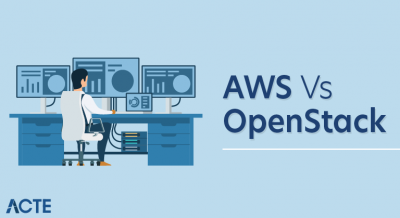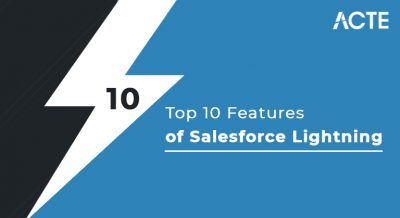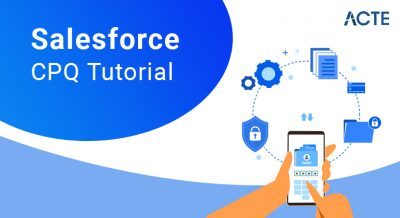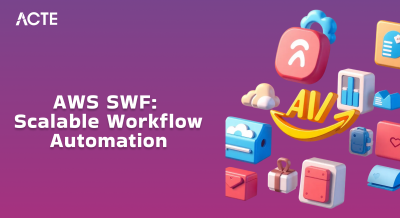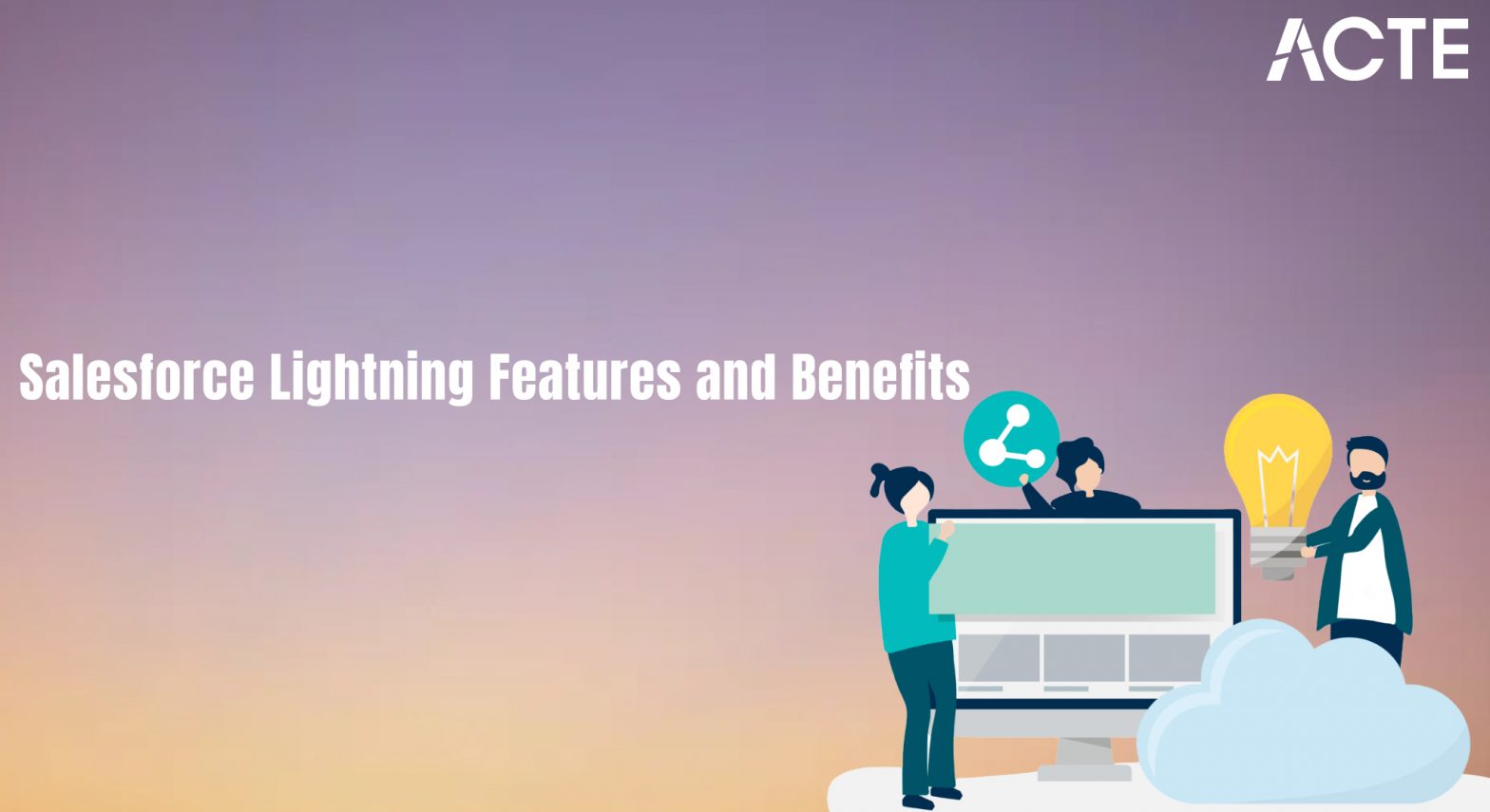
- What is Salesforce?
- The Evolution of Salesforce
- Key Features of Salesforce
- Salesforce Ecosystem
- Salesforce Security Model
- Salesforce Clouds Explained
- Salesforce Integration with Other Platforms
- Salesforce AppExchange
- Conclusion: Why Choose Salesforce?
What is Salesforce?
Salesforce is a powerful, cloud-based customer relationship management (CRM) platform that helps businesses of all sizes manage their sales processes, track customer interactions, and streamline operations across various departments. Originally designed as a CRM system, Salesforce Training has evolved into a multifaceted platform with solutions for sales, marketing, customer service, analytics, and application development. The beauty of Salesforce lies in its ability to centralize all customer-related data into a single platform, allowing companies to provide seamless experiences across different channels and improve overall business efficiency. CRM system is built on a cloud infrastructure, meaning that it is accessible from anywhere, anytime, on any device with internet access.
The Evolution of Salesforce
Salesforce was founded in 1999 by Marc Benioff, Parker Harris, Dave Moellenhoff, and Frank Dominguez. At the time, CRM solutions were on-premise and quite expensive. The idea behind Salesforce was to offer a more affordable, easy-to-use solution that businesses could access over the internet. In the early days, Salesforce primarily offered its CRM functionality through its Sales Cloud. However, over the years, the company expanded its offering to include other specialized clouds like Service Cloud, Marketing Cloud, and Commerce Cloud. Salesforce also embraced the Salesforce Data Validation Rules Guide of “Platform as a Service” (PaaS) with the launch of Force.com, allowing developers to create custom applications that could integrate with Salesforce. Additionally, the acquisition of companies like Heroku, Tableau, and MuleSoft has helped Salesforce solidify its position as a leader in cloud-based enterprise software solutions.
Unlock your potential in Salesforce with this Salesforce Training .
Key Features of Salesforce
Salesforce is loaded with powerful features that enhance business productivity and streamline workflows. Some of the key features include:
- Lead and Opportunity Management: Salesforce provides robust tools to track leads and opportunities throughout the sales process. You can easily monitor a lead’s progress, ensuring that no opportunity is missed.
- Contact and Account Management: Salesforce helps manage customer information by organizing all contacts and accounts in one place, ensuring that sales and service teams have access to up-to-date customer data.
- Customizable Dashboards: With Salesforce’s customizable dashboards, teams can visualize and analyze real-time data to monitor key metrics, performance trends, and make data-driven decisions.
- Automation: Salesforce offers automation tools like Process Builder, Workflow Rules, and Flow to automate routine tasks like data entry, approvals, and Salesforce Sandbox Explained, saving time and reducing human error.
- Reporting and Analytics: Salesforce’s powerful reporting tools allow you to create detailed reports and analyze your data in meaningful ways. You can track sales, service activities, and customer interactions, which helps inform strategic decisions.
- AppExchange: Salesforce offers the AppExchange, a marketplace where users can find and install apps that extend the functionality of the platform. Introduction to Salesforce includes apps for marketing, sales automation, customer service, and more.
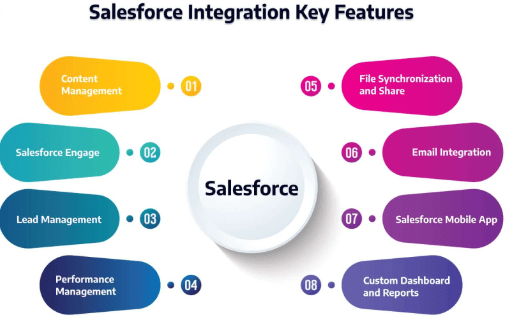
Salesforce Ecosystem
Salesforce Ecosystem is vast and diverse, and it includes multiple products, services, and tools that cater to different business needs. Salesforce Ecosystem can be broken down into:
- Sales Cloud: For sales automation and managing customer relationships.
- Service Cloud: For providing customer service and support.
- Marketing Cloud: For running marketing campaigns, Salesforce Training, and customer segmentation.
- Commerce Cloud: For building and managing e-commerce sites.
- Community Cloud: For creating online communities and collaboration.
- Analytics Cloud: For advanced data analytics and reporting.
- IoT Cloud: For managing Internet of Things (IoT) data.
- MuleSoft: MuleSoft is a platform for building application networks by connecting apps, data, and devices. With Salesforce’s acquisition of MuleSoft, businesses can easily integrate Salesforce with a wide range of third-party applications, both on-premise and in the cloud.
- Salesforce Connect: Salesforce Connect allows you to integrate external data sources into Understanding the Salesforce Security Model. This means you can bring in data from other CRM system and work with it directly within the Salesforce platform.
- Third-Party Apps: Salesforce has a large number of pre-built integrations available via the AppExchange, which allows users to integrate with tools like Google Workspace, Microsoft Outlook, and various marketing and accounting software platforms.
Salesforce Clouds: Salesforce offers a variety of clouds designed to meet specific business functions:
Salesforce Platform: The Salesforce Platform allows developers to create custom applications tailored to business needs. It includes tools like Apex, a proprietary programming language, and Visualforce, a framework for building user interfaces.
Salesforce Integration Tools: Salesforce integrates seamlessly with a wide range of third-party tools and platforms. MuleSoft helps businesses connect Salesforce with other software, while Tableau provides advanced data visualization.
Learn how to manage and deploy Salesforce Services by joining this Salesforce Training today.
Salesforce Security Model
Salesforce places a strong emphasis on data security with a comprehensive, multi-layered security model. How to Create a Salesforce Web-to-Lead Form includes object-level, field-level, and record-level security to ensure that users only access the data they are permitted to see. Features like role hierarchies, sharing rules, profiles, and permission sets help administrators control access and enforce compliance across the organization. Salesforce also supports advanced features like two-factor authentication (2FA) and IP whitelisting to further secure user access.
Salesforce Clouds Explained
Salesforce provides a range of specialized clouds, each catering to different business needs. Below are some of the most important Salesforce clouds, Sales Cloud is the heart of Salesforce, designed to help sales teams manage their leads, contacts, opportunities, and accounts. It includes tools for tracking sales performance, automating workflows, and forecasting sales. Service Cloud focuses on customer service, providing tools for managing support cases, delivering self-service options, and offering a 360-degree view of the customer. It includes features like live chat, knowledge base Amazon Web Services and Salesforce Integration, and automated customer service workflows. Marketing Cloud is a suite of tools for managing and automating marketing campaigns across multiple channels, including email, social media, and mobile. It also provides customer segmentation, lead management, and data analytics capabilities. Commerce Cloud helps businesses create personalized e-commerce experiences. It supports both B2C and B2B commerce, providing tools for managing product catalogs, orders, and customer experiences across various online channels. Community Cloud allows organizations to create branded online communities where customers, partners, and employees can collaborate, share information, and solve problems.
Take charge of your Salesforce career by enrolling in ACTE’s Salesforce Master Program Training Course today!
Salesforce Integration with Other Platforms
One of the standout features of Salesforce is its ability to integrate with a variety of other tools and platforms. Salesforce provides out-of-the-box integration options and tools like MuleSoft and Salesforce Connect to make the integration process easier.
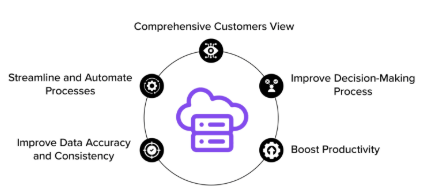
Want to ace your Salesforce interview? Read our blog on Salesforce Interview Questions and Answers now!
Salesforce AppExchange
The Salesforce AppExchange is a marketplace where users can discover, try, and install thousands of third-party apps and solutions built to extend Salesforce functionality. These apps range from productivity tools and marketing automation to industry-specific solutions. Businesses can find ready-made integrations or even custom apps developed by partners, which speeds up deployment and adds significant value to their Salesforce investment. AppExchange apps are categorized by function, industry, and cloud compatibility, making it easy to find tools tailored to specific business needs. Many of the apps are plug-and-play, requiring minimal setup, while others offer deep customization options. Users can read reviews, view demos, and check ratings to make informed decisions before installing an app. In addition to apps, AppExchange also features consulting partners who offer implementation and advisory services. Whether it’s CPQ solutions, document generation, analytics, or enhanced user interface tools, Top Features of Salesforce Lightning offers a robust ecosystem for expanding your Salesforce org. Security is a top priority — all listed apps go through a rigorous security review process by Salesforce to ensure compliance and data protection. AppExchange also includes free apps, paid apps, and managed packages, giving organizations flexibility based on their budget and requirements.
Conclusion
Salesforce has become a go-to solution for businesses looking to manage customer relationships, automate workflows, and scale their operations. Introduction to Salesforce an all-in-one platform that supports sales, marketing, customer service, and custom application development, making it a versatile tool for businesses of all sizes. The flexibility and scalability of Salesforce, Salesforce Training with its vast ecosystem of tools and third-party integrations, make it an ideal choice for businesses looking to streamline their processes and provide a personalized experience for their customers. With powerful features, comprehensive analytics, and automation capabilities, Salesforce can help organizations boost productivity and drive growth. Whether you’re a small business or a large enterprise, Salesforce offers the tools and resources you need to succeed in a competitive market.

